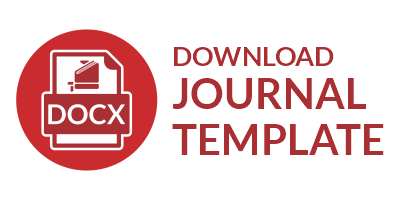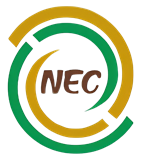Innovation in Teaching and Learning Education in the Digital Era
DOI:
https://doi.org/10.64008/gpej.v1i2.24Keywords:
innovation, teaching, learning, digital eraAbstract
As human needs become more complex, educational technology is not only using tools (machines) for learning in the current era of information technology. Innovative teachers can create a learning environment that motivates students, increases creativity, and stimulates their interest in learning. This study aims to determine the description of innovation in teaching and learning education in the digital era. The research method used is the Library Research Method. The data that has been collected is triangulated and reduced to produce conclusions. Education, especially State Senior High School 1, Pasir Penyu District, Indragiri Hulu Regency, is one of the instruments affected by the reform movement with four students as subjects. Researchers found several important aspects regarding teaching and learning in the digital era, namely, learning in the digital era has different characteristics from student learning in the past; the generation in this era are those with digital native characters. Students today are born, grow, and grow up in direct contact with the digital world, so the information obtained will be different from previous students. Innovation in teaching and learning is a discovery that can be an idea, item, event, or method observed as something new for the world of education, such as using media in the learning process and utilizing smartphones for learning. Other media that can help students learn well, media here is an innovation. Teachers, as partners in learning, must be able to design learning activities so that students obtain more information than the time provided.
References
Aldrich, C. (2005). Learning by doing: A comprehensive guide to simulations, computer games, and pedagogy in e-learning and other educational experiences. John Wiley & Sons.
Ally, M. (2022). Designing and developing pedagogical resources for mobile learning.
Duffy, T. M., & Jonassen, D. H. (2013). Constructivism and the technology of instruction: A conversation. Routledge.
Sheninger, E. (2019). Digital leadership: Changing paradigms for changing times. Corwin Press.
Emalia, E., & Farida, F. (2019). Inovasi pendidikan dengan memanfaatkan teknologi digital dalam upaya menyonsong era revolusi industri 4.0. In Prosiding Seminar Nasional Program Pascasarjana Universitas Pgri Palembang.
Greenhow, C., & Lewin, C. (2021). Social media-based learning: Bridging digital literaciesand 21st-century skills. Journal of Educational Technology, 8(3), 197.
Hasan, M. (2015). Inovasi dan modernisasi pendidikan pondok Pesantren. KARSA Journal of Social and Islamic Culture, 23(2), 296-306. https://doi.org/10.19105/karsa.v23i2.728.
Koehler, M. J., Mishra, P., Bouck, E. C., Kafyalek, A., Kinzer, C. K., & Orrill, C. H. (2020). Technological pedagogical content knowledge: A framework for teachers in the digital age. Journal of Research on Technology in Education, 42(2), 123-137.
Mayer, R. E. (2014). Incorporating motivation into multimedia learning. Learning and instruction, 29, 171-173. https://doi.org/10.1016/j.learninstruc.2013.04.003.
Mansyur, U. (2016). Inovasi pembelajaran bahasa indonesia melalui pendekatan proses. RETORIKA: Jurnal Bahasa, Sastra, dan Pengajarannya, 9(2), 256786.
Mitra, S. (2010). The hole in the wall: self organising systems in education.
Astawa, I. N. T. (2017). Understanding the Role of Society and Government in the Advancement of Education Quality in Indonesia. J. Quality Assurance, 3(2), 197-205.
Prensky, M. R. (2010). Teaching digital natives: Partnering for real learning. Corwin press.
Riduwan. (2004). Research Methods. Jakarta: Rineka Cipta.
Rouf, A., Syukur, F., & Maarif, S. (2024). Entrepreneurship in Islamic Education Institutions: Pesantren Strategy in Responding to the Industrial Revolution 4.0. Tafkir: Interdisciplinary Journal of Islamic Education, 5(2), 250-265. https://doi.org/10.31538/tijie.v5i2.1115.
Situmorang, M. (2013). Development of high school chemistry textbooks through learning innovation and integration of character education to improve student learning outcomes. R. Agustrina. Proceedings of Semirata FMIPA University of Lampung, 67-73.
Sugiyono, S. (2012). Qualitative research methods and R&D. Bandung: Alfabeta.
Syafril, E. P. E. (2019). ‘Ruangguru’, digitalisasi pendidikan antara capaian nilai dan pengembangan karakter melalui interaksi sosial. Icadecs. Um. Ac. Id, 2019, 94-99.
Downloads
Published
Issue
Section
License
Copyright (c) 2025 Afrida Yanis (Author)

This work is licensed under a Creative Commons Attribution 4.0 International License.






